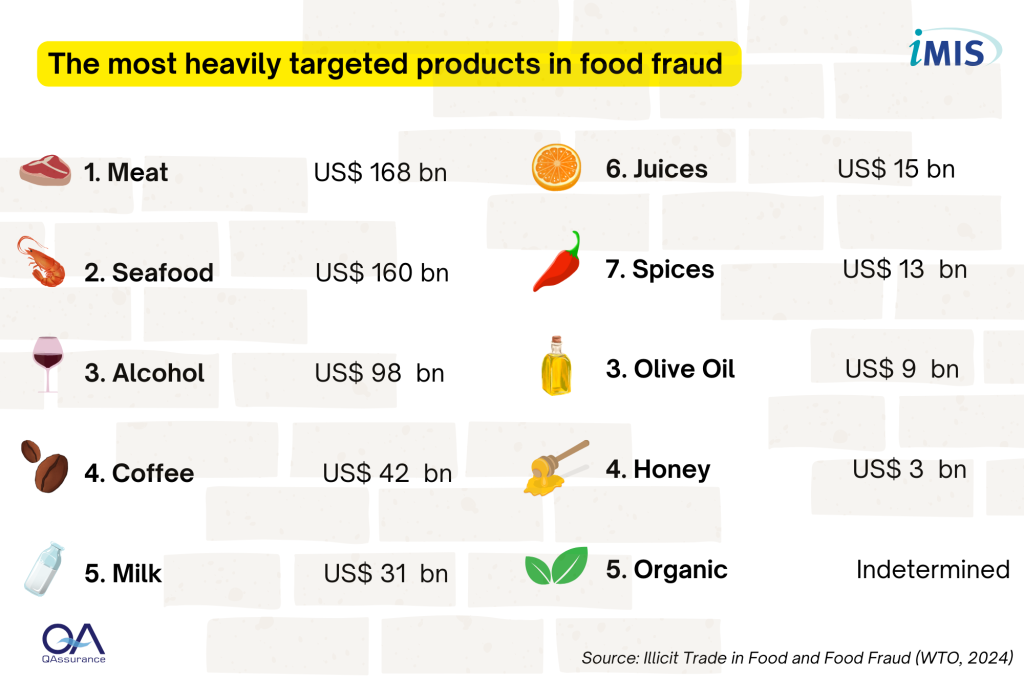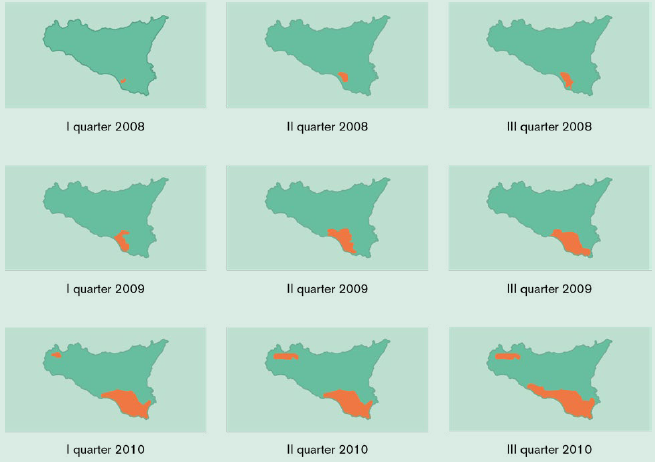Unmasking the Threat
Illicit trade and food fraud in the agri-food sector pose significant economic and public health risks. Legitimate businesses face financial losses, governments lose tax revenue, and enforcement costs rise. Consumers are endangered by counterfeit and unsafe products, eroding trust in the food supply chain. Fraudulent operators gain an unfair advantage, disrupting global trade and potentially leading to trade barriers.
Protecting the integrity of the global food supply chain necessitates a multifaceted approach encompassing regulatory measures, enforcement, industry collaboration, and consumer education. This article summarizes the World Trade Organization’s (WTO) latest report on combating illicit trade in the agri-food sector, outlining strategies and recommendations to address this critical issue.
Food Fraud: A Growing Issue
The debate over whether globalized trade exacerbates food fraud continues, with some emphasizing increased handling as a risk factor and others noting even local products can be vulnerable. However, the economic impact is undeniable, with TRACIT estimating annual losses at US$ 30-50 billion, excluding illicit alcohol, underscoring the urgent need for action. Food fraud also damages reputations and erodes consumer trust. The WTO report provides an overview of the most frauded food products (Figure 1).

Decoding Food Fraud: What Motivates it?
The evolving nature of food fraud techniques and the pervasive presence of illicit trade throughout the food supply chain necessitates a shift in perspective: experts emphasize the importance of viewing food fraud as a continuous, dynamic process rather than isolated incidents. This approach enables the identification of vulnerabilities and potential entry points for fraudsters at each link in the chain, facilitating the development of more effective prevention and mitigation strategies.
Beyond the operational details, understanding the root causes is paramount. WTO experts identify these key drivers as fueling the persistence of food fraud:
- Insufficient legal frameworks and border controls
- Extensive, porous borders that provide entry points for smugglers
- Weakly regulated informal economies
- A large, profitable consumer market
- High poverty levels driving demand for cheaper food options
Identifying Food Fraud Vulnerabilities
While the nature of fraud makes detection and quantification difficult, globalization and intricate supply chains have undeniably amplified the risk by diminishing transparency and traceability. For instance, the following things contribute to enhancing vulnerability to food fraud:
E-commerce
The booming cross-border food e-commerce market has exacerbated food fraud, creating significant challenges in ensuring transparency, traceability, and consumer protection due to exemptions for personal imports and limited recourse in fraudulent transactions.
New food sources and production systems
Emerging foods, processing methods, and inconsistent standards create opportunities for fraud due to a lack of established terminology, regulatory frameworks, and consumer familiarity.
Informal food economy
The vast informal food economy, particularly in developing countries, increases the vulnerability to food fraud due to a lack of regulation and oversight.
Organized crime
Food fraud, often linked to organized crime, thrives in environments with low perceived costs and weak oversight.
The Impact of Food Fraud on Sustainable Development
Illicit trade in the global food industry causes billions in losses annually, undermining economic growth, poverty reduction, and food security. This illegal activity destabilizes economies, distorts markets, and threatens safe food supplies, impacting 11 of the 14 Sustainable Development Goals, according to the WTO.
No poverty, zero hunger and good health and well-being (SDGs 1,2,3)
Illicit trade exacerbates food insecurity by reducing availability, increasing prices, and promoting the consumption of unsafe products. It also fuels poverty by undermining fair markets and reducing incomes, leading to malnutrition and broader economic instability.
Clean water and sanitation (SDG 6)
The illicit use of agrochemicals poses significant risks, contaminating the environment and endangering both human health and ecosystems.
Decent work and economic growth (SDG 8)
Illicit trade in agri-foods damages businesses, economies, and consumers’ trust while fostering human rights abuses and jeopardizing sustainable development.
Industry, innovation and infrastructure and sustainable cities and communities (SDGs 9 and 11)
Counterfeit products undermine investment in research and innovation, disincentivize technological development, and hinder industrialization and sustainable economic growth.
Responsible consumption and production (SDG 12)
Food fraud threatens sustainability and disrupts ecosystems through practices like illegal deforestation and pesticide misuse.
Life below water and on land (SDGs 14 & 15)
Illicit pesticide use not only contaminates waterways and degrades soil, but also poses a significant threat to biodiversity.
Peace, justice and strong institutions (SDG 16)
Organized crime’s involvement in the illicit agri-food trade destabilizes economies, undermines the rule of law, and poses wider security risks, as exemplified by cases in Italy, Germany, Kenya, the Maghreb region, and Mexico.
Learning from Reality: Illegal Practices in the Trade of Seeds
Illegal seed practices, including intellectual property and regulatory violations, threaten global food security, livelihoods, and seed industry integrity. Often linked to wider criminal activities, they undermine sustainable agriculture and consumer health. The 2008 Sicilian tomato crisis, where illegal reproduction led to widespread crop damage, exemplifies the devastating consequences (Figure 2).

Turning the Tide on Food Fraud: A Roadmap for Action
The WTO’s rulebook offers guidance for national policies to combat illicit trade, emphasizing flexibility and non-discrimination. It also advocates for international agreements on agriculture, trade facilitation, and sanitary measures, among others.
Recognizing the dual impact of global trade on hunger reduction and increased food supply chain complexity, the WTO emphasizes collaboration among stakeholders for a resilient system. Producers bear ultimate responsibility for consumer safety. The WTO proposes the following solutions to combat and reduce food fraud:
- Vulnerability Assessments
- Mitigation Plans
- Testing
- Supply Chain Management
- Governance and Risk Systems
- Data and Technology
- Collaboration
To read more extensively about WTO plans and collaboration to combat food fraud, read the full report here.
iMIS Food Updates
iMIS Food is an example of how data and technology can assist in food fraud prevention. This knowledge-driven platform is designed for Food Safety Assurance, enabling food businesses to independently manage their Food Safety. The platform assists companies in demonstrating compliance with Food Safety, EU Food legislation, and quality standards. System enhancements are rolled out through “iMIS Food Updates”.
iMIS Food Updates is a valid tool against food fraud as it keeps you informed about:
- Food Safety Hazards overview, library, and updates
- Food Fraud overview, library, and updates
- EU Legislation overview, library, and updates
- Food Safety Standards overview, library, and updates
- Food Training material and updates
- iMIS Food generic overview, library, and updates
Source
World Trade Organization. (2024). Illicit trade in food and food fraud. https://www.wto.org/english/res_e/publications_e/itfff_e.htm
Related articles to How to Fight Food Fraud - The WTO's Expert Guide
Many customers and visitors to this page 'How to Fight Food Fraud - The WTO's Expert Guide' also viewed the articles and manuals listed below:
